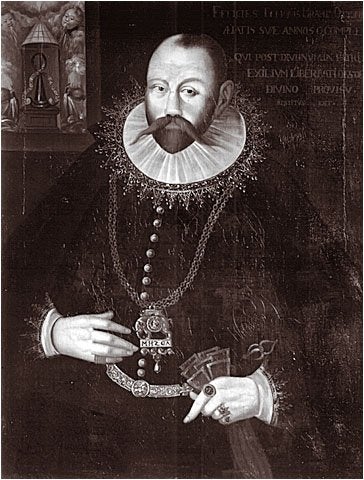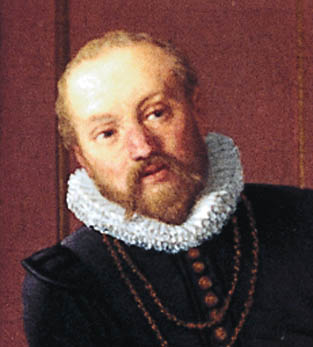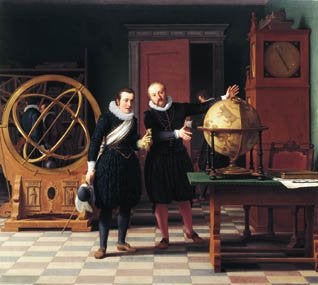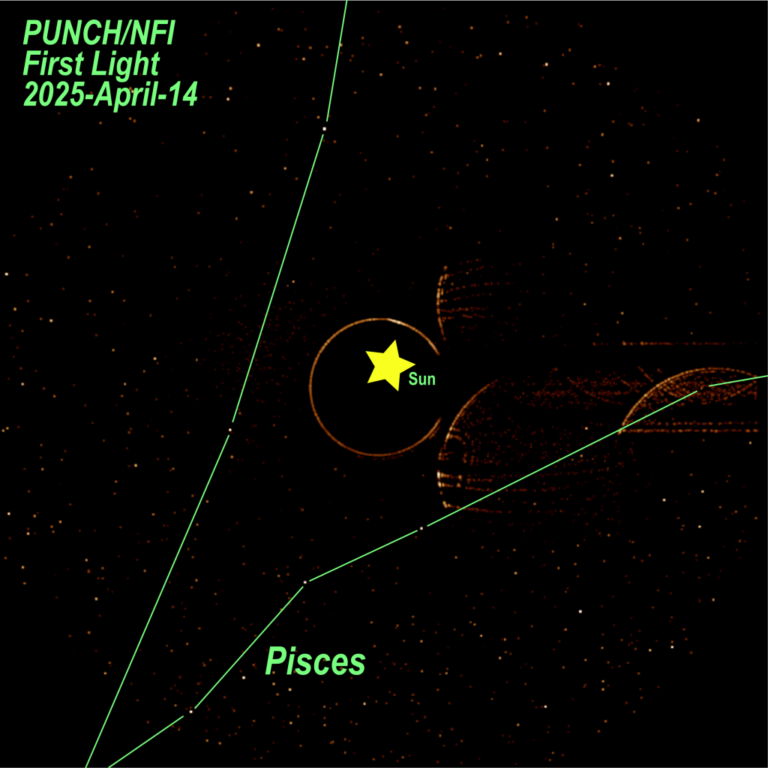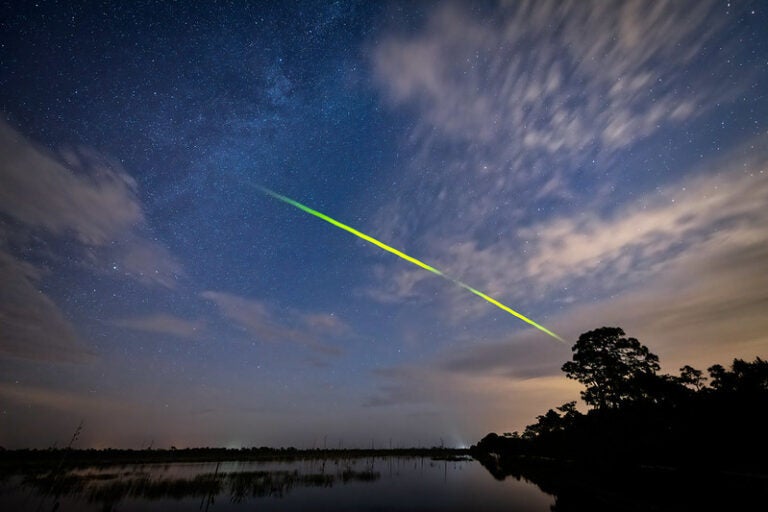December 14, 1546: Tyge (pronounced “Teeguh”) Brahe, who would later go by the Latinized name Tycho (pronounced “Teekoh”), was born in his family’s manor, Knutstorps Castle (then in Denmark but now part of Sweden). Unbeknownst to Tycho until more than two decades later, two boys were born to his parents, Otte Brahe and Beate Bille, that day, but Tycho was the sole survivor.
circa 1549: Tycho was kidnapped by his uncle and aunt, Jørgen Brahe and Inger Oxe. His parents apparently did not try to protest or retrieve him. His resulting close ties with his aunt’s family, many of whom were intellectuals, probably helped steer Tycho away from a purely aristocratic career and into a scholarly one.
April 19, 1559: At twelve, not an unusual age at the time, Tycho started studying at the University of Copenhagen.
August 21, 1560: Thirteen-year-old Tycho either saw or learned about a lunar eclipse that helped spark his growing interest in astronomy.
February 14, 1562: Fifteen-year-old Tycho and his chaperone/tutor, Anders Sørensen Vedel, left Denmark on a five-week trip to the University of Leipzig, where Tycho began studying classical languages and culture. There, as he would write later, he also “bought astronomical books secretly and read them in secret.”
August 1563: Tycho began a logbook of his observations, starting with a sighting of Mars and then a conjunction of Jupiter and Saturn. He realized that predictions of these events based on both Ptolemy’s Earth-centered model and Copernicus’s sun-centered model were both flawed.
June 1565: Tycho’s uncle (and foster father) died after rescuing King Frederick II, who, after drinking, had fallen into the water near Copenhagen. King Frederick II later would be very supportive of Tycho.
December 29, 1566: Tycho and his third cousin, Manderup Parsberg, began arguing at Tycho’s lodging house in Rostock, where he was then studying. Soon their swords were drawn and much of Tycho’s nose was chopped off. He wore metal prostheses thereafter.
December 27, 1571: Johannes Kepler was born.
1572: Tycho began a relationship with Kirsten Jørgensdatter, who was likely the daughter of the pastor Jørgen Hansen. Under Danish law, when a woman of common birth lived in a nobleman’s house for three winters and carried the keys to his home, she became his common-law wife. But the law also stated that she and any children she might have would forever remain commoners and the children could not inherit the nobleman’s property.
November 11, 1572: Tycho discovered a “new star” in the constellation Cassiopeia. “I knew perfectly well — for from my youth I have known all the stars in the sky, something which one can learn without difficulty — that no star had ever before existed in that place in the heavens,” Tycho wrote. He studied it for signs of motion relative to the background stars but found none, surmising that the star had to lie beyond the moon’s orbit. According to Aristotle, changes in the heavens could only occur within the moon’s orbit, prompting Tycho to say, “Let the very theologians, interpreters of the divine mysteries, be silent! Let the mathematicians, describers of the heavenly bodies, be silent!” Research begun in the 1940s suggests Tycho’s “star” was actually the explosion of a white dwarf star as a type I supernova.
February 22, 1576: About two weeks after King Frederick II offered Tycho the island of Ven for his research, Tycho logged his first observation there, a conjunction of the moon and Mars. Tycho spent the next three months on the island trying to decide whether he should accept the king’s offer of Ven, which had been made after Tycho refused offers of four other fiefs. Tycho was concerned about spending too much time away from his research, writing to a friend, “I am displeased with society here, customary forms and the whole rubbish…. Among people of my own class … I waste much time.” At the end of three months, he agreed to live and work on Ven.
Winter 1580-1581: Uraniborg, the elaborate mansion surrounded by bountiful gardens, was completed at the center of Ven. It boasted running water, which was not found in the palaces of the queen of England or the king of France.
August 1596: Nineteen-year-old Christian IV became the new king of Denmark. Shortly after taking office, he took one of Tycho’s sources of income, a fief called Nordfjord, away from him. This was probably due to a series of political and religious improprieties on Tycho’s part, including Tycho’s negligence in maintaining a chapel that housed the king’s father and grandfather. Tycho petitioned the king to return it, but in January 1597 the king replied that he would not, and that he would also not endow Uraniborg permanently.
March 15, 1597: The last recorded observation was made on Ven and Tycho’s annual pension ceased. Tycho soon fled Denmark with his family, some other staff, and nearly all his instruments and books. In the years after Tycho’s exile, angry residents of Ven, who had deeply resented Tycho’s imperiousness, tore down Uraniborg and its gardens and created a pasture in its place.
July 1599: Tycho was welcomed warmly in Prague and was given a generous salary and space for his research by Emperor Rudolph II.
January 26, 1600: Tycho invited Kepler, with whom he had already corresponded about astronomy, to come stay with him. “You will come not so much as guest but as very welcome friend and highly desirable participant and companion in our observations of the heavens,” Tycho wrote.
October 24, 1601: Tycho died after having held his urine too long at a dinner party on October 13. Kepler wrote, “During his last night … Brahe repeated these words over and over again: ‘Let me not seem to have lived in vain.'” Tycho was buried in Prague after a lavish funeral.

